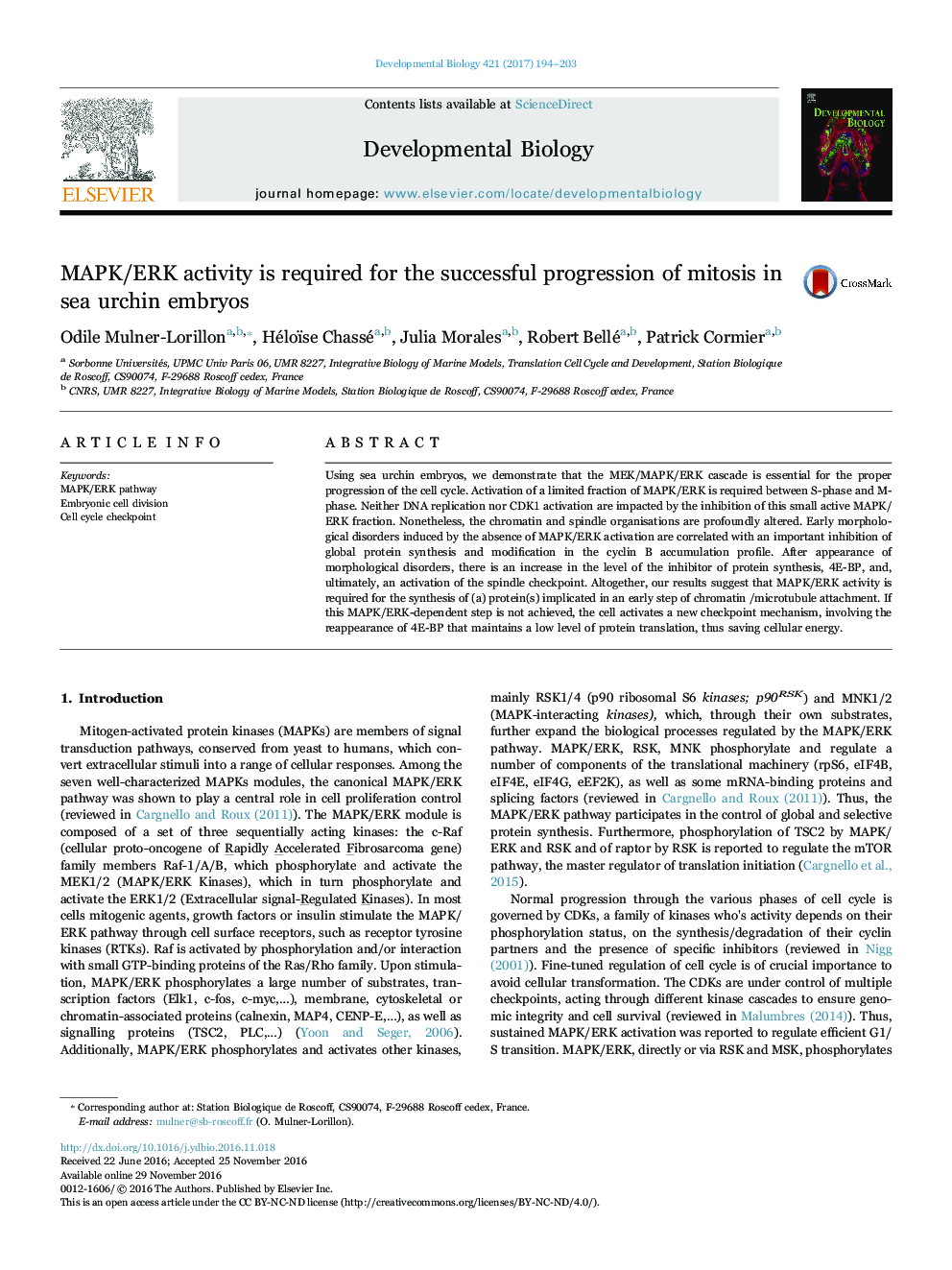| Article ID | Journal | Published Year | Pages | File Type |
|---|---|---|---|---|
| 5531944 | Developmental Biology | 2017 | 10 Pages |
Using sea urchin embryos, we demonstrate that the MEK/MAPK/ERK cascade is essential for the proper progression of the cell cycle. Activation of a limited fraction of MAPK/ERK is required between S-phase and M-phase. Neither DNA replication nor CDK1 activation are impacted by the inhibition of this small active MAPK/ERK fraction. Nonetheless, the chromatin and spindle organisations are profoundly altered. Early morphological disorders induced by the absence of MAPK/ERK activation are correlated with an important inhibition of global protein synthesis and modification in the cyclin B accumulation profile. After appearance of morphological disorders, there is an increase in the level of the inhibitor of protein synthesis, 4E-BP, and, ultimately, an activation of the spindle checkpoint. Altogether, our results suggest that MAPK/ERK activity is required for the synthesis of (a) protein(s) implicated in an early step of chromatin /microtubule attachment. If this MAPK/ERK-dependent step is not achieved, the cell activates a new checkpoint mechanism, involving the reappearance of 4E-BP that maintains a low level of protein translation, thus saving cellular energy.
